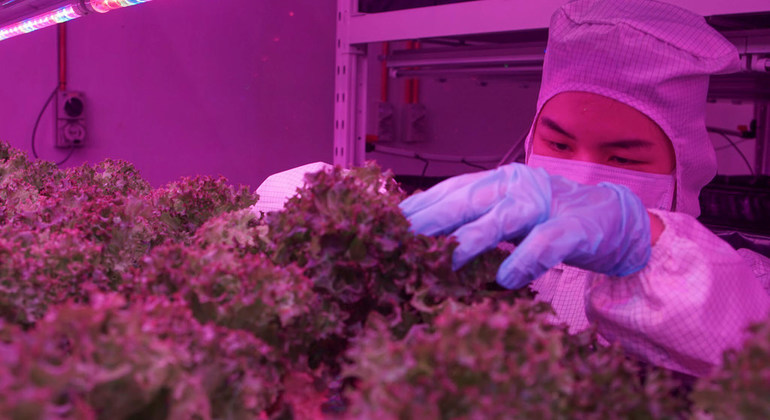“The scale and pace of change, to date, to deliver SDGs has not been big enough or fast enough”, said Remi Erikson, who led the team that drafted the report, Uniting Business in the Decade of Action, which shows that just 39 per cent of companies surveyed believe they have targets that are sufficiently ambitious to meet the Sustainable Development Goals by 2030.
The scale and pace of change, to date, to deliver SDGs has not been big enough or fast enough Remi Erikson, CEO, DNV GL
“Only 46% of businesses surveyed are embedding the SDGs in their core business”, said Mr. Erikson, the CEO of risk management company, and Global Compact participant, DNV GL. “less than a third of businesses believe their industry is moving fast enough to deliver the SDGs by 2030”.
“Incremental change by individual companies will not deliver the business contribution needed to reach the Sustainable Development Goals (SDGs)”, said Mr. Erikson. “Companies and the systems they are part of are moving broadly in the same direction, but not in a concerted effort. Achieving the needed change requires a ramping up of ambition among all companies, whether they operate within the energy, healthcare, food, finance, transport or other systems.
Policy is not enough
Mr. Erikson told UN News that, although 93 per cent of participants have embedded the Global Compact Ten Principles (on human rights, labour, environment and anti-corruption) into their policies, not enough is being done to put them into practice. “Policy is not enough to drive change, and we see a marked gap between having policies in place and implementing measures to act on the Principles”.
In addition, whilst the vast majority of participating companies recognize the importance of sustainable development, says Mr. Erikson, they are not doing enough to significantly reduce their negative impact on the environment: whilst science-based targets are considered by many sustainable development professionals as an important indicator of a company’s willingness to reduce its carbon footprint and negative environmental impact, the report reveals that, whilst around a third of companies surveyed are developing a science-based carbon reduction target, only 15 per cent have already set one.
Reasons to be hopeful
Despite the slow progress, and the economic fallout from the COVID-19 pandemic, Mr. Eriksen insists that he is hopeful that a post-pandemic “new normal” will be an improvement, in terms of building a better future for all.
“I am slightly more optimistic about the future now than I was two months ago as I have seen how businesses have used their experience, creativity and determination to find ways to serve their customers and create new solutions to operate in an unprecedented environment.”




